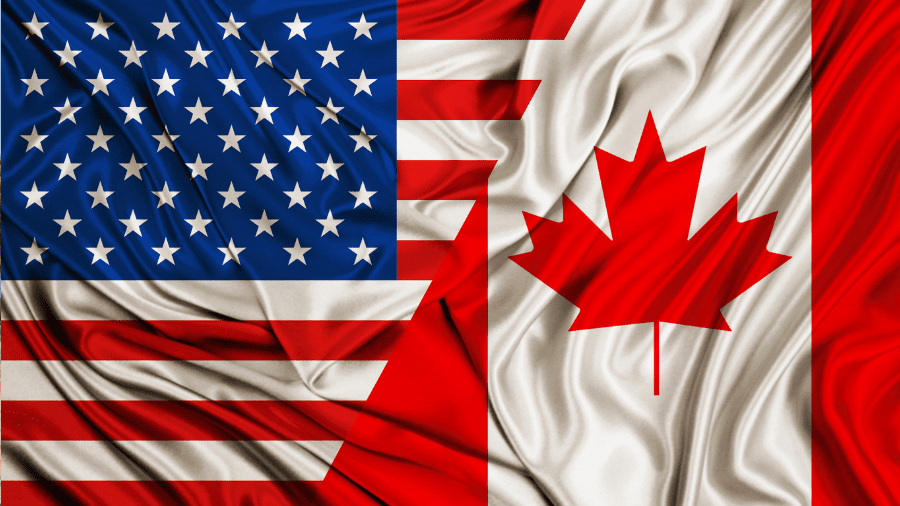This article originally appeared in National Review.
By Jon Hartley, October 26, 2023
Alongside (and sometimes intertwined with) the 2024 Republican primary contest, there is an ongoing debate over the future of Republican economic policy. On the one side, there are those upholding the Reagan-Buckley vision of limited government and free markets, and on the other side are those who favor various forms of greater state intervention in the economy, from tariffs to industrial policy.
Among the Republican candidates who have embraced a more traditionally free-market approach are Senator Tim Scott, whose “Build, Don’t Borrow” plan includes a balanced-budget amendment, and former governor Nikki Haley’s economic “Freedom Plan,” which includes an overhaul of entitlement programs such as Social Security and Medicare. There are good cases to be made for such ideas, but how realistic or politically effective would they prove to be? It’s hard to believe that a balanced-budget amendment to the U.S. Constitution would ever be ratified, and entitlement reform, while desperately needed, is a tremendously difficult political sell even among many Republicans, and it would almost surely be discarded in the general-election campaign.
The bread-and-butter Republican approach of tax cuts is also a tough sell today amid a skyrocketing federal debt (at the highest levels since World War II) and big deficit spending that continues despite a robust U.S. labor market that’s not presently in a recession.
This highlights the fact that Reagan-Buckley Republicans need new economic-policy ideas to complement the old ones. Looking north of the border to Canada, we see new free-market, conservative, economic-policy ideas that are having considerable political success under Pierre Poilievre, the leader of the Conservative Party of Canada and leader of the opposition. A big part of their success has to do with the fact that while being free-market-oriented, the ideas also are targeted at helping those below the median income who traditionally don’t vote for Canada’s Conservative Party.
Poilievre’s conservative economic-policy platform — largely built on zoning reform to promote housing affordability and on occupational-licensing reform to get skilled immigrants to work — have handed his party a significant lead in the polls. It’s ahead of incumbent prime minister Justin Trudeau’s Liberal Party. If an election were held today, Poilievre’s party would win a majority of seats.
Poilievre’s conservative plan directly confronts the tight local and provincial land-use regulations. These regulations prevent new housing construction in many Canadian cities, and that in turn spawns skyrocketing housing prices, making it nearly impossible — especially for younger voters — to own a home. Canada suffers from some of the highest home price-to-income ratios in the OECD:

As a result of Poilievre’s plan to withhold federal infrastructure funds from municipalities that don’t hit housing supply-growth targets that cheapen housing, young voters, an almost universally progressive demographic, have been miraculously galvanized to support the Canadian conservatives. Many young Canadians feel that they will never be able to afford a suburban home in their lifetime, which is why this message resonates so much with them. Of course, having a long-in-the-tooth prime minster, plagued by constant scandal, who has also presided over the near 0 percent GDP per capita growth in Canada over the past decade, helps this trend as well.
Housing affordability and stagnant housing supply are issues that beset many American states as well. Republicans in the U.S. would be wise to follow suit, despite protests from incumbent homeowners and their respective lobbies.
Poilievre is also winning votes from legal Canadian immigrants by proposing occupational-licensing reforms that help such immigrants use skills previously honed in their home country that can’t be used in Canada because of onerous laws.
For instance, Poilievre has proposed a “Blue Seal Test” for 20,000 Canadian immigrant doctors (many of whom currently drive for rideshare) to allow these doctors to practice in Canada, contingent on their passing a medical exam.
The U.S. has similarly onerous occupational-licensing laws, as documented in academic work by economists Morris Kleiner and Alan Krueger, who find that the fraction of the U.S. workforce that’s licensed has risen from 5 percent in the 1950s to 29 percent as of 2008. Many states require unnecessary retraining and relicensing for licensed, out-of-state workers. States are catching on, and more than a dozen have passed universal reciprocity laws since 2019. Federal action and preemption could help further relax licensing requirements, making it easier for currently licensed workers to find jobs. These jobs (apart from highly skilled doctors and lawyers) skew toward the lower end of the income distribution (think nail technicians and hair braiders); these voters often don’t vote Republican.
Albeit not in the traditional Republican federalist playbook, a stronger federal approach could be beneficial — for instance in withholding federal infrastructure funds to promote housing construction, or creating federal rules to promote licensing reciprocity across states and prevent excessive occupational licensing.
Republican candidates today and in the future would be wise to add such policy ideas to their economic-policy plans, particularly free-market ideas that can improve economic opportunity for those below the median income who have not traditionally been conservative voters. It could help bring new voters to the Republican Party.
Jon Hartley is a senior fellow at the Macdonald-Laurier Institute, a Research Fellow at the Foundation for Research on Equal Opportunity, and an economics PhD student at Stanford University.






